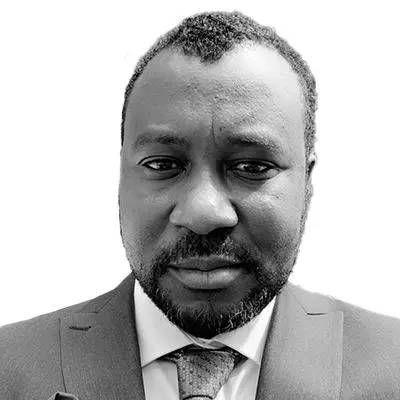
“Solent has it right, however, with industry-focused courses and lecturers.”


Gain advanced knowledge in electronic engineering, from circuits to autonomous systems. Develop industry-ready skills for jobs in technology and innovation.
In this part-time integrated master’s programme with foundation year you will learn about everything from analogue and digital electronics to contemporary embedded systems, signal processing technologies and modern communications.
You’ll be taught by an experienced academic team, starting your studies with a Science and Engineering Foundation Year, building up your base knowledge and preparing you for degree level study.
You’ll also explore subjects such as maths and circuitry before getting to grips with analogue, digital and microcomputer systems. You will then focus on developing an understanding of industry software, key professional skills and manufacturing techniques.
These proficiencies will form a solid foundation for the rest of the degree, where you will study embedded systems and advanced data communications, carry out your own research and undertake a major practical project.
This course is part of the South Coast Institute of Technology (IoT), a partnership of colleges, universities and industry-leading employers to create new career opportunities in the technology sector. IoT courses like this one are precisely tailored to the needs of employers in the maritime, engineering and digital industries – industries which are hungry for talented new engineers, technologists, technicians and creatives like you.
Contact international admissions
Email: Call:Part of:

If you're not quite ready for a full undergraduate degree, there's alternative entry through one of our foundation years
You can study this course part-time
This course has access to specialist facilities
This course is perfect for those already in employment and wish to combine their knowledge with engineering skills to be able to pursue a career in areas such as electronic design, telecommunications, microcomputers or research and development.
This course can lead to a career in a range of electronic industries or further study. Graduate opportunities include a range of career paths in electronic design, microcomputer or embedded systems, possibly automation or circuit development.


Hear from Solent alumni about where their careers have taken them and how studying at Solent prepared them for their future.
Read more stories
“Solent has it right, however, with industry-focused courses and lecturers.”

The engineering team has a diverse range of academic and industrial experience and research interests in the fields of digital signal processing, micro-controller and embedded programming, the automation of sensing, capturing and processing data, and a range of electronic communication and simulation methods.

Associate Lecturer

Associate Professor

Senior Lecturer

Associate Professor of Marine Sustainability

Course Leader

Lecturer

Lecturer

Senior Lecturer

Associate Professor

Associate Lecturer

Technician Instructor

Lecturer
The University cannot guarantee any particular members of staff will teach specific aspects of the course in the future, but will endeavour to ensure the teaching team maintains their balance of experience and qualifications.
Electronic engineering students benefit from access to a range of high-end facilities including rapid prototyping equipment, PSpice/NI MultiSim software and microcomputer development systems. Solent University also offers students access to digital multi-meter signal generators, FLIR cameras and digital signal processing (DSP) boards – all of which allow students to better understand how the theory they have learnt links to real workplace scenarios.
Laboratories also include NI MultiSim eCAD software, rapid prototyping equipment with 3D printers and laser cutters, and a wide range of development systems for microcomputer and microcontroller systems.
This module sits within the circuit theme and is designed to give you an introduction to the basic terminology, concepts and devices used in electronic circuits.
On this module you will learn how to apply a range of mathematical techniques to realistic engineering problems. You will use basic algebra and solve simultaneous equations and equations of straight lines to answer engineering problems around linked variables in mechanics and electronics.
This module is designed to introduce you to the electrical and electronic principles necessary to analyse circuit behaviour and design. It also provides the foundation for further study of more specialised electrical/electronic engineering techniques used later in your course.
Solent’s curriculum framework builds on our unique, creative and applied approach to teaching. The transformation of students’ lives is at the heart of our mission as a university, and our curriculum – informed by the latest theory – reflects this shared educational vision.
Find out more
The student achievement team are on hand to help you succeed during your studies at Solent. They aim to contact you at key times during your time here with personalised information, advice and guidance, by email or phone.
The disability advice team provides information, advice and guidance for disabled students.
All students can access Succeed@Solent, Solent's online guide to getting better grades. It offers extensive, practical information and advice on topics such as academic writing, research and presentations.
According to the Engineering Council, 18 per cent of the UK's workforce works in engineering. However, the sector is experiencing a skills shortage with a number of engineering occupations featuring in the Government's shortage occupations list. Electronic engineering is one of these occupations, meaning there should be many opportunities for industry-ready graduates to make their mark.
This course aims to provide students with the knowledge that electronic engineering employers will require. These range from essential mathematical concepts to circuitry, automation, data communications and signal processing skills. Critically, past students have been able to gain an insight into real-life engineering problems, tackling projects defined for them by our network of industry contacts.
Students are encouraged to interact with the industry throughout the curriculum. In previous years, Solent’s engineering students have had the opportunity to work closely with employers such as Rolls-Royce, SAAB, Sea Eye, TUV and Coopervision. The Institution of Engineering and Technology and the Wessex Round Table of Inventors (WRTI) have also held regular local professional development events on campus.

Starting salaries £25,000 to £33,000
Starting salaries for electronics engineers are around £25,000 to £33,000. Graduate training schemes may pay towards the top end of this scale. With experience, possibly working at an incorporated engineer level, you could earn around £30,000 to £45,000.
Starting salaries £20,000 to £25,000
Graduate starting salaries are around £20,000 to £25,000. With some experience, salaries can range from £28,000 to £40,000. Average salaries for experienced senior engineers, or those with chartered status, can exceed £60,000.
The stated salaries are published on prospects.ac.uk. Income figures are intended as a guide only.


Hear from Solent alumni about where their careers have taken them and how studying at Solent prepared them for their future.
Read more stories
“Solent has it right, however, with industry-focused courses and lecturers.”

The Solent Careers team is committed to getting students into great careers.
While you are studying, the team can help you with finding work experience or placements, link you with a mentor, check your CV, or offer one-to-one guidance.
If you're in your final year, we also have graduate job opportunities just for Solent graduates.

6th
UK uni for sustained employment
Longitudinal Educational Outcomes, 2022
Part of:

The tuition fees for the 2025/26 academic year are:
For further information, please visit our tuition fees page.
While most course costs are covered by your tuition fees, some essential resources and optional extras may need to be paid for separately. For advice on budgeting and managing your money, please contact student.funding@solent.ac.uk.
Solent University offers a range of bursaries and scholarships that provide financial assistance or waive fees for tuition or accommodation. Each bursary or scholarship has specific eligibility criteria. Check out our bursaries and scholarships pages to find out more.
Cost of living support
At Solent, we understand that the cost of living crisis may be of some concern. To help, we've put together some detailed information to show what support is available and how to make your money go further.
There is no charge to attend graduation, but you will be required to pay for the rental of your academic gown (approximately £45 per graduate, depending on your award). You may also wish to purchase official photography packages, which range in price from £15 to £200+. Graduation is not compulsory, so if you prefer to have your award sent to you, there is no cost. Extra guest tickets will go on sale after results publication and will be sold on a first-come-first-served basis. The cost per ticket is currently £15. Please note, we do not guarantee there will be any extra tickets available to purchase.
Please select an option below:
As a general guide, we look for qualifications that are equivalent to the British high school A-levels.
If you are applying from outside the UK, find information about entry requirements, visas and agents for your country here.
For further information about EU qualifications, please see our course entry requirements document.
For international students who do not meet the direct entry requirements for this undergraduate degree, our trusted partner, QA Higher Education offers the following pathway programme designed to develop your academic and English language skills:
As a general guide, we look for qualifications that are equivalent to the British high school A-levels.
If you are applying from outside the UK, find information about entry requirements, visas and agents for your country here.
For further information about international qualifications, please see our course entry requirements document.
For international students who do not meet the direct entry requirements for this undergraduate degree, our trusted partner, QA Higher Education offers the following pathway programme designed to develop your academic and English language skills:
All international applicants need to be aware that the English language requirements to attend Solent University, and the English language requirements to obtain a visa from the Home Office, may be different. This means that if you meet the Solent University language requirement to gain a place on the course, you may still have to meet additional requirements to be granted with a visa by the Home Office.
We strongly advise all applicants to visit the Home Office website which outlines all the requirements for a successful visa application
Contact international admissions
Email: Call:Full-time
Any student applying for the first year of a full-time/sandwich undergraduate course must apply through UCAS (University and Colleges Admissions Service). This includes mature, overseas and EU students.
Nearly all schools and colleges offer their students the facility of applying electronically through the UCAS website using 'Apply'; it may also be used by those applying independently in the UK and overseas. This facility and all course information can be found on the UCAS website: www.ucas.com.
Your application should reach UCAS by 31 January if you hope to enter a course the following autumn. Early application is advised for the most popular subject areas. Late applications may be made until the end of June. The UCAS Code for the University is S30, code name SOLNT.
Find out what happens after you apply
Contextual offers
Solent endeavours to offer learning opportunities to students from all backgrounds. When we receive and review an application, we take into consideration the context and personal circumstances of applicants when making a decision, which means our advertised entry tariff could be reduced.
Part-time and distance learning courses
Applications for part-time and distance learning courses are made directly to the University and can be made at any time prior to the start of the course. If you have any questions about applying for this course, please contact the admissions office by emailing admissions@solent.ac.uk.
Applicants who do not have English as their first language will be required to demonstrate an approved level of proficiency in the use of the English language. The agreed minimum requirements for this course are:
IELTS 6.0 overall with a minimum of 5.5 in each individual component
or equivalent.
Qualifications are checked before enrolment, and international students must bring their original certificates or certified copies when coming to study at the University.
The University also offers a pre-sessional English programme for international students who wish to improve their level of English before starting a degree course.


